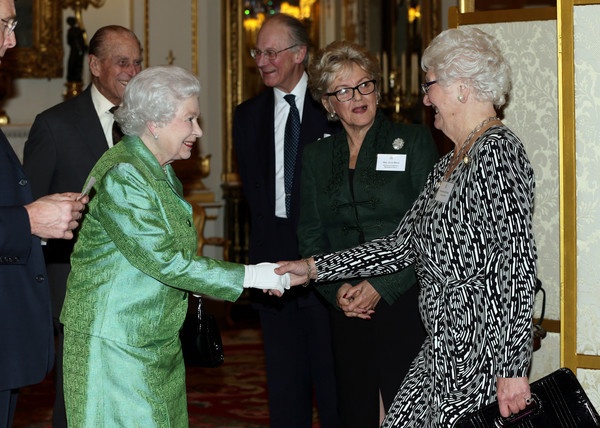The Winston Churchill Memorial Trust (WCMT) has today made 21 awards totalling £150,000 to 21 urgent projects by Churchill Fellows to combat the effects of Covid-19 in healthcare and many other areas of UK life.
The projects range from preventing domestic abuse, housing rough sleepers and educating children in care to expanding food production, providing trauma therapy for key workers and supporting BAME families bereaved by Covid-19.
Jeremy Soames, WCMT Chairman and grandson of Sir Winston Churchill, in whose memory the Churchill Fellowship was founded, said: “In today’s urgent situation, the Churchill Fellows’ contribution to the national effort is remarkable. They are proven experts in their fields, working on the frontline and making an impact where it is most needed. I believe my grandfather would have been immensely proud of what today’s Churchill Fellows are achieving in his name, during the greatest challenge our nation has faced since the war.”
The 21 Churchill Fellows will receive an average grant of £7,370, totalling almost £155,000. Churchill Fellows are UK citizens from all walks of life who are chosen each year to find the world’s best solutions for the UK’s most pressing problems in every area of society.
The 21 projects to mitigate the effects of the pandemic which will receive Action Fund grants, include, by theme:
Mental health
- Charity founder Alison Jordan from Exmouth will launch therapeutic programmes for people bereaved by suicide during the pandemic.
- Psychotherapist Dan Trevor from Denbighshire will transition his Dialectical Behaviour Therapy sessions online for young people at risk of self-harm and suicide.
- Counsellor and psychotherapist Evelyn Sharp from Brighton and Hove, will provide free online trauma therapy to key workers who are experiencing acute stress linked to the pandemic.
The BAME community
- Community manager Arfah Farooq from London, will create a summer mentoring programme for Muslim and BAME students to replace internships that have been cancelled.
- Equality campaigner Patrick Vernon from London, will develop a special fund and website to help BAME families bereaved by Covid-19.
- Nurse consultant Ruth Oshikanlu from London, will provide culturally-sensitive psychological support to frontline BAME health and social care staff
- Social enterprise founder Yvonne Field from London, will capture the stories of BAME women leaders from across the UK who have supported BAME communities during the pandemic
Disability inclusion
- Braille charity director Edward Rogers from Bristol, will provide isolated blind adults and children with emergency provision of Braille learning , equipment and training in employable skills, in preparation for a post-pandemic recession
- Disability consultant William Case from Manchester, will support disabled people and social carers with online advice and virtual training in disability issues during the pandemic.
Health and social care
- Speech and language therapist E.A. Draffan from West Sussex will develop an app that enables health and social care workers to communicate with patients who have difficulty communicating.
- Doctor Tim Robbins from Warwickshire will develop testing and monitoring for high-risk Covid-19 patients with diabetes who come from deprived communities.
- Digital inclusion consultant Sara Dunn from Dorchester will develop a Covid-19 Survival Pack for unpaid carers via a smartphone app
Children and young people
- Charity director Geneva Ellis from London, will provide educational support for looked after children and care leavers across 12 children’s homes and homes for care leavers.
- Social enterprise director Matt Little from Bristol will launch a new scheme for disadvantaged young people in Cornwall to develop them as social entrepreneurs and help engage them in social action in response to the crisis in their community
- Youth organisation director Temi Mwale from London, will increase advocacy and legal support for young people with experience of the criminal justice system , who are disproportinately affected by the CV19 crisis.
Homelessness
- Homelessness campaigner Amy Varle from Manchester will launch a tech hub of expert practitioners across the UK to coordinate ways of housing entrenched rough sleepers during the CV19 crisis and beyond.
Migration
- Community campaigner Amanda Walters from London, will build a community alliance of low-paid migrant cleaners , providing them with online advice and guidance to ensure these key workers are protected during the pandemic.
Domestic abuse
- Charity director Becky Rogerson from Sunderland, will develop a new model of grassroots support to prevent domestic abuse by connecting communities and local services in the north-east of England
Food production
- Social enterprise co-founder Helen Woodcock from Manchester will expand her organisation’s essential work in providing fresh vegetables for the Greater Manchester community to meet increased demand at this time.
Community response
- Local council resilience manager Melvin Hartley from Portsmouth will gather learnings and best practice from spontaneous volunteer programmes across the UK that are providing aid to the community during the pandemic.
The Covid-19 Action Fund was launched in April 2020 by WCMT, to increase its Fellows’ impact in the national effort against CV-19. Hundreds of pandemic projects nationwide are being run or assisted by Churchill Fellows, using the international expertise they gained during their Fellowships overseas. The Fund aims to award a second round of grants in the autumn.
Lessons learnt from the whole spectrum of Fellows’ CV-19 projects will be gathered to create a national resource and knowledge bank of learnings and recommendations. This resource will be available for policy-makers and practitioners in many sectors as the UK starts to restore itself, build resilience and prevent future similar scenarios.
There are 3,800 Churchill Fellows in the UK. They are drawn from all backgrounds and age groups, and are normally funded to travel overseas seeking the world’s best solutions for the UK’s current challenges. This year, due to the restrictions on international travel, Fellows are being funded for UK-based activities, to focus on helping the UK’s recovery and resilience.


